Toyota C-HR vs VW ID.5 – Which model is better for everyday use?
Both models have their strengths – but which one suits you more?
Compare performance, efficiency, price and space directly: Toyota C-HR or VW ID.5?
Costs and Efficiency:
When it comes to price and running costs, the biggest differences usually appear. This is often where you see which car fits your budget better in the long run.
Toyota C-HR has a evident advantage in terms of price – it starts at 29100 £, while the VW ID.5 costs 36800 £. That’s a price difference of around 7697 £.
As for range, the VW ID.5 performs decisively better – achieving up to 559 km, about 491 km more than the Toyota C-HR.
Engine and Performance:
Under the bonnet, it becomes clear which model is tuned for sportiness and which one takes the lead when you hit the accelerator.
When it comes to engine power, the VW ID.5 has a distinct edge – offering 340 HP compared to 223 HP. That’s roughly 117 HP more horsepower.
In acceleration from 0 to 100 km/h, the VW ID.5 is evident quicker – completing the sprint in 5.40 s, while the Toyota C-HR takes 7.40 s. That’s about 2 s faster.
There’s no difference in top speed – both reach 180 km/h.
Space and Everyday Use:
Cabin size, boot volume and payload all play a role in everyday practicality. Here, comfort and flexibility make the difference.
Both vehicles offer seating for 5 people.
In curb weight, Toyota C-HR is clearly perceptible lighter – 1505 kg compared to 1963 kg. The difference is around 458 kg.
In terms of boot space, the VW ID.5 offers to a small extent more room – 549 L compared to 447 L. That’s a difference of about 102 L.
In maximum load capacity, the VW ID.5 performs distinct better – up to 1561 L, which is about 406 L more than the Toyota C-HR.
When it comes to payload, VW ID.5 clearly perceptible takes the win – 549 kg compared to 425 kg. That’s a difference of about 124 kg.
Who comes out on top?
Overall, the VW ID.5 shows itself to be outperforms in nearly all aspects and secures the title of DriveDuel Champion.
It convinces with the more balanced overall package and proves to be the more versatile choice for everyday use.
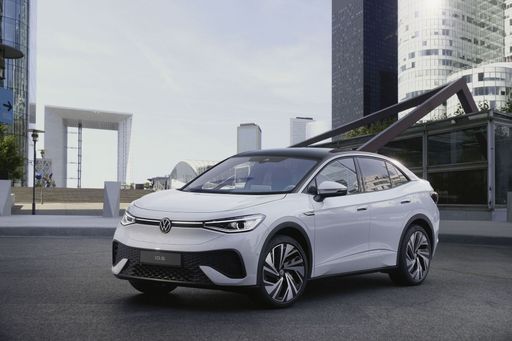 @ Volkswagen AG / VW Media
@ Volkswagen AG / VW Media
VW ID.5
Toyota C-HR
The Toyota C-HR cuts a striking figure with its angular styling and coupe-like profile, so you’ll never go unnoticed in the supermarket car park. It balances everyday practicality with a nimble, city-friendly personality, making routine commutes feel a touch more fun without asking for forgiveness.
details @ Toyota Motor Corporation
@ Toyota Motor Corporation
 @ Toyota Motor Corporation
@ Toyota Motor Corporation
 @ Toyota Motor Corporation
@ Toyota Motor Corporation
 @ Toyota Motor Corporation
@ Toyota Motor Corporation
 @ Toyota Motor Corporation
@ Toyota Motor Corporation
VW ID.5
VW ID.5 dresses electric power in a sleek, coupe-like profile that turns sensible motoring into something a touch more stylish and smug. Inside it’s spacious and user-friendly, with calm, confidence-inspiring driving that suits buyers who want EV simplicity without the sci‑fi theatrics.
details @ Volkswagen AG / VW Media
@ Volkswagen AG / VW Media
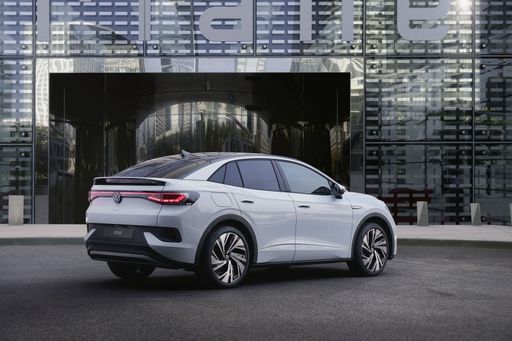 @ Volkswagen AG / VW Media
@ Volkswagen AG / VW Media
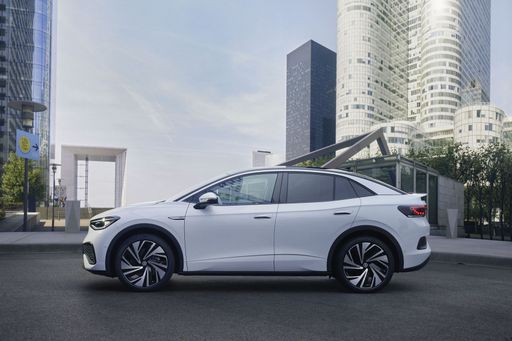 @ Volkswagen AG / VW Media
@ Volkswagen AG / VW Media
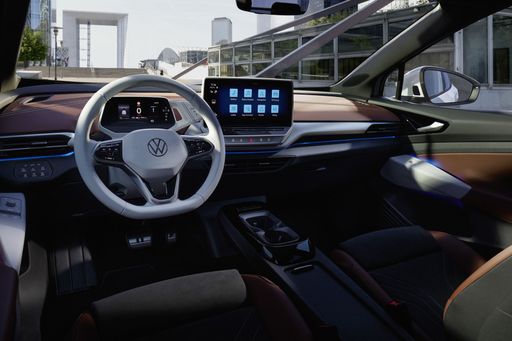 @ Volkswagen AG / VW Media
@ Volkswagen AG / VW Media
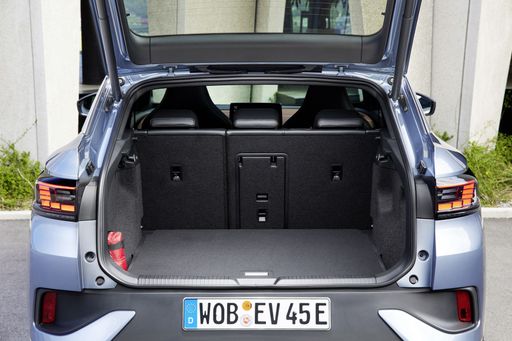 @ Volkswagen AG / VW Media
@ Volkswagen AG / VW Media
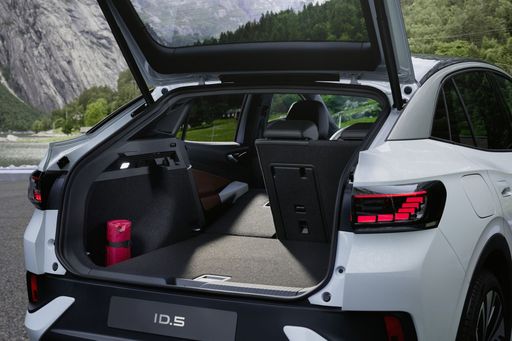 @ Volkswagen AG / VW Media
@ Volkswagen AG / VW Media
 @ Toyota Motor Corporation
@ Toyota Motor Corporation
|
 @ Volkswagen AG / VW Media
@ Volkswagen AG / VW Media
|
|
|
|
Costs and Consumption |
|
|---|---|
|
Price
29100 - 42800 £
|
Price
36800 - 48400 £
|
|
Consumption L/100km
0.8 - 5.1 L
|
Consumption L/100km
-
|
|
Consumption kWh/100km
-
|
Consumption kWh/100km
15.7 - 16.6 kWh
|
|
Electric Range
68 km
|
Electric Range
363 - 559 km
|
|
Battery Capacity
-
|
Battery Capacity
52 - 79 kWh
|
|
co2
17 - 115 g/km
|
co2
0 g/km
|
|
Fuel tank capacity
43 L
|
Fuel tank capacity
-
|
Dimensions and Body |
|
|---|---|
|
Body Type
SUV
|
Body Type
SUV
|
|
Seats
5
|
Seats
5
|
|
Doors
5
|
Doors
5
|
|
Curb weight
1505 - 1755 kg
|
Curb weight
1963 - 2233 kg
|
|
Trunk capacity
350 - 447 L
|
Trunk capacity
549 L
|
|
Length
4362 mm
|
Length
4582 - 4599 mm
|
|
Width
1832 mm
|
Width
1852 mm
|
|
Height
1558 - 1564 mm
|
Height
1601 - 1618 mm
|
|
Max trunk capacity
1076 - 1155 L
|
Max trunk capacity
1561 L
|
|
Payload
375 - 425 kg
|
Payload
517 - 549 kg
|
Engine and Performance |
|
|---|---|
|
Engine Type
Full Hybrid, Plugin Hybrid
|
Engine Type
Electric
|
|
Transmission
Automatic
|
Transmission
Automatic
|
|
Transmission Detail
CVT
|
Transmission Detail
Reduction Gearbox
|
|
Drive Type
Front-Wheel Drive, All-Wheel Drive
|
Drive Type
Rear-Wheel Drive, All-Wheel Drive
|
|
Power HP
140 - 223 HP
|
Power HP
170 - 340 HP
|
|
Acceleration 0-100km/h
7.4 - 9.9 s
|
Acceleration 0-100km/h
5.4 - 8.9 s
|
|
Max Speed
175 - 180 km/h
|
Max Speed
160 - 180 km/h
|
|
Torque
-
|
Torque
310 - 679 Nm
|
|
Number of Cylinders
4
|
Number of Cylinders
-
|
|
Power kW
103 - 164 kW
|
Power kW
125 - 250 kW
|
|
Engine capacity
1798 - 1987 cm3
|
Engine capacity
-
|
General |
|
|---|---|
|
Model Year
2024 - 2025
|
Model Year
2024 - 2025
|
|
CO2 Efficiency Class
C, B
|
CO2 Efficiency Class
A
|
|
Brand
Toyota
|
Brand
VW
|
What drivetrain options does the Toyota C-HR have?
Available configurations include Front-Wheel Drive or All-Wheel Drive.
The prices and data displayed are estimates based on German list prices and may vary by country. This information is not legally binding.
